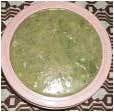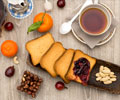Which?, a UK consumer watchdog, finds a lower proportion of high-sugar cereals in the market since 2006. But hardly eight per cent qualified for Food Standards Agency norms for sugar content.
Which?, a UK consumer watchdog, finds a lower proportion of high-sugar cereals in the market since 2006. But hardly eight per cent qualified for Food Standards Agency norms for sugar content.
After examining 100 cereals bought in January from the main supermarkets – excluding hot cereals and muesli, the nonprofit said sugar levels were “shockingly high” and it was “particularly worrying” that so many high-sugar cereals were targeting children.Thirty one of the 100 cereals examined were found to contain more than four teaspoons of sugar per recommended serving.
Only one of the 28 cereals specifically marketed to children was found not to be high in sugar, Which? said.
Sue Davies, chief policy adviser for the group said: “Breakfast is important, and some cereals deserve their healthy image, but most simply don’t.
“It’s especially shocking that almost all those targeted at children are less healthy.
“With such little choice, it’s a daily struggle for consumers.
Advertisement
“With over a billion pounds spent on cereals every year, it’s time they rose to the occasion.”
Advertisement
And supermarket chain Morrisons, whose own brand Choco Crackles, were named as the most sugary cereal, containing 38.4g of sugar per 100g, has said it has now reformulated the cereal.
It now has a sugar content of 36g per 100g, bringing it into line with similar products.
Many brands thought of as healthy, such as Kellogg’s All Bran, Bran Flakes and Special K, failed to impress the Which? Researchers, Wales Online reported.
The watchdog said starting the day with a recommended serving of Special K would be “almost the sugar equivalent” to waking up to a serving of Tesco Dark Chocolate Fudge Cake Premium Ice Cream.
However, the report titled Going Against the Grain, said none of the cereals sampled contained trans fats, which boost cholesterol in the blood and are thought to cause even more damage to the heart than saturated fats. And none of the children’s cereals in the 2009 basket were high in saturates.
Jacqui Lowdon, a dietitian in North Wales, said: “Breakfast cereals are still shockingly high in sugar, which is a shame as they can contribute hugely to a child’s nutritional intake, particularly if they are fortified with extra vitamins.
“Breakfast cereals can also be a great way of getting calcium into children through milk.
“I would encourage parents to give their children a great start to the day with breakfast cereals but choose un-sugared varieties which are also high in fibre. If they want something sweet, add chopped pieces of fruit, which have a natural sweetness and count as one of their five-a-day.”
A statement from the Association of Cereal Food Manufacturers, said: “People should take this report with a massive pinch of salt. There is indisputable evidence of the benefits of eating breakfast but a large proportion of the British public don’t.
“The Food Standards Agency recommends don’t skip breakfast and to choose wholegrain cereals, yet data shows that one in six children skips breakfast every day.
“As highlighted in the report, there is a wide range of cereals to meet every occasion and breakfast cereal manufacturers are continually working to improve their nutritional profile.
“In addition, breakfast cereals provide an invaluable source of vital nutrients, ensuring that millions of Britons have a healthy start to the day.
“By choosing to report their findings in such a sensationalist way, Which? will just add to the confusion felt by many people about what foods they should or should not be eating.”
Source-Medindia
GPL/L














